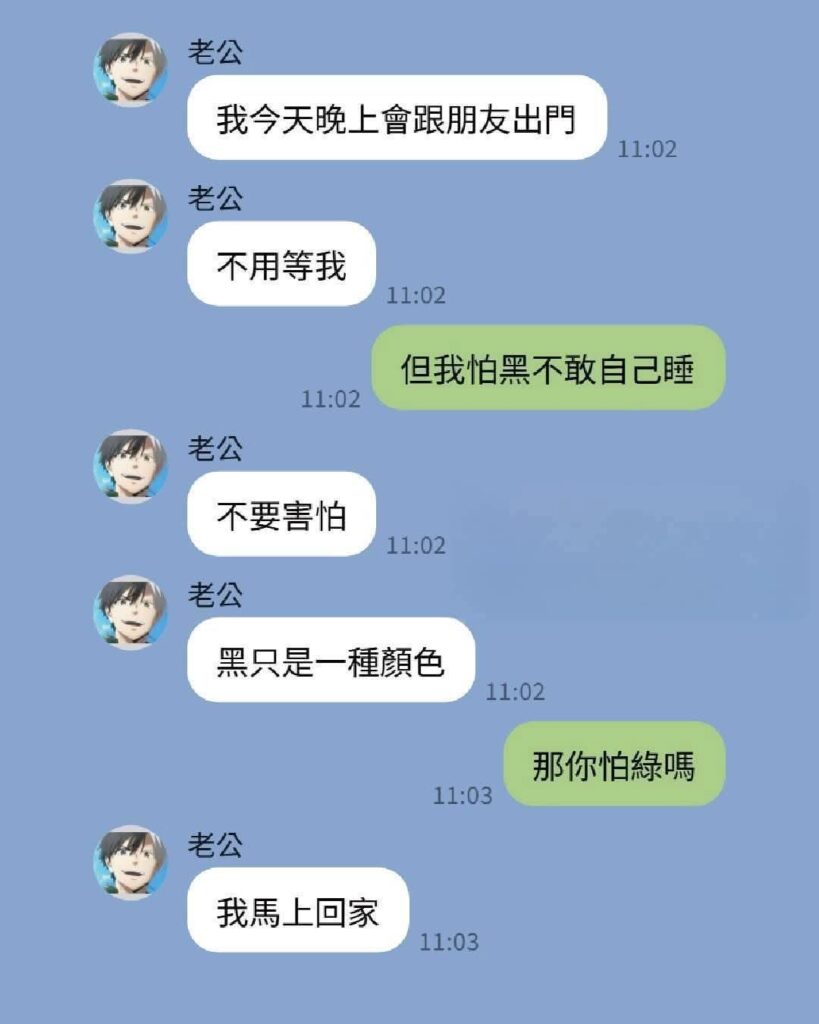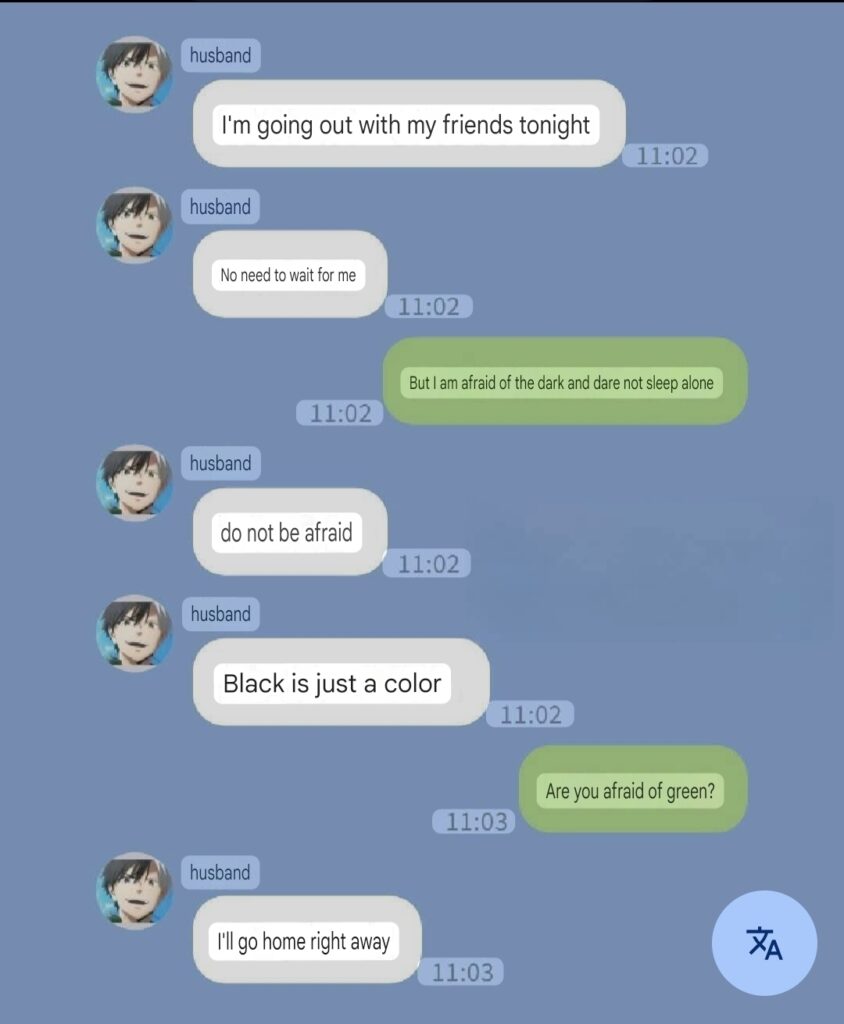Fear of the Green

I’m often asked whether I fear my job as primarily a literary translator being made redundant by AI.
Allow me to illustrate my position with a humorous exchange from social media (Taiwanese, in this case). First, the original post:

And now, the AI translation of the above, created by sharing the same image to Google Lens:

If you didn’t get the joke, you wouldn’t be alone: This is a word-for-word, literal translation – which is what machine translation websites do. The best of them will correct for syntax and grammar, but as a general rule, the more human and literary the text, the less reliable AI will be at translating it accurately.
This means that all the things that go into making language so rich – humour, irony, metaphor, euphemism, litotes, figures of speech, wordplay, etc. – are, to AI, essentially a black box.
You may notice that the register in the translated exchange seems oddly elevated – almost antiquated – for a few messages between a husband and wife, and the language seems stilted in some other respects. This is fairly typical of machine translation.
But more to the point, colour symbolism is one of the literary devices mentioned above that doesn’t map 1:1 from language to language. Absent further context but assuming the colour itself is not what is meant, green in English will generally have natural-world associations, but it could also refer to someone’s inexperience, be understood as a slang reference to money, and more.
In Chinese, green in this context derives from lümaozi, 綠帽子 (lit. “green hat”), and it means “cuckold” or “the state of being a cuckold; being cuckolded”.
Now you understand the play on words, but the more challenging part, and one that professional translators are paid to grapple with, among a host of others, is (a) recognising such idiomatic expressions where AI can’t, and (b) working out how to retain that double entendre – or, at a stretch, any type of equivalent wordplay – while ensuring that the meaning comes across clearly and cleanly in the target language.
Translation is not a simple exercise in bilingual substitution, adjusted for grammaticality and idiomaticity. It is a skilled profession and an art in its own right, and that’s why I believe literary translators will remain essential in the age of AI.
So, to the question of whether I’m afraid AI will have me out of job, my answer remains an optimistic:

MSM
This post was originally written in English. Versions of it in other languages may have been automatically translated unless stated otherwise.

Michael McKay
Very helpful!